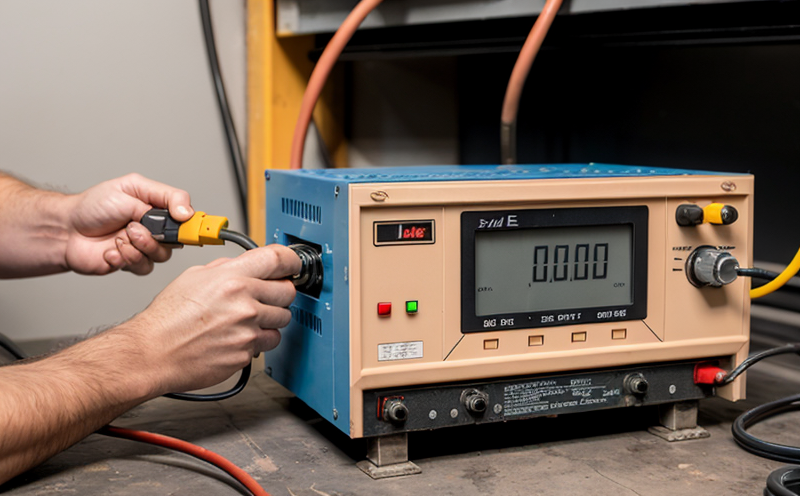JEDEC JESD22-B116 Die Mechanical Integrity Testing
The JEDEC JESD22-B116 standard outlines a method for testing die mechanical integrity to ensure that semiconductor and microchip packages maintain their structural stability under various environmental stresses. This test is crucial in the quality assurance process as it helps identify potential weaknesses early, preventing costly failures later in product lifecycle.
The test involves subjecting the die to specific mechanical stress conditions designed to mimic real-world usage scenarios. These include thermal cycling, humidity exposure, and vibration. The goal is to evaluate how well the die adheres to its substrate or package during these stresses without compromising integrity. This service ensures that any defects are detected before the assembly process, thereby enhancing product reliability.
Key parameters for this test include temperature ranges from -55°C to +125°C with a dwell time of at least 3 hours per cycle and relative humidity levels up to 90% RH. Vibration testing can also be conducted to simulate transport conditions. Specimen preparation typically involves mounting the die on a carrier substrate, ensuring it is secure and aligned correctly.
The equipment used for this test includes specialized environmental chambers capable of maintaining precise temperature and humidity controls as well as vibration tables designed to replicate real-world stress levels accurately. Instrumentation such as thermocouples or RTDs (Resistance Temperature Detectors) are employed to monitor the die's response during each stage of testing.
Acceptance criteria for this test vary slightly depending on manufacturer specifications but generally focus on observing no visible damage, cracks, or delamination between the die and its surrounding materials after completing all prescribed cycles. Reporting typically includes detailed observations along with pass/fail results indicating whether the tested units met the required standards.
Understanding these aspects is essential for quality managers who need to ensure compliance with industry standards like JEDEC JESD22-B116 while also considering broader implications such as supply chain reliability and customer satisfaction. By incorporating this testing into their manufacturing processes, companies can significantly reduce risks associated with early failures due to mechanical issues.
For R&D engineers looking to innovate within the semiconductor industry, mastering techniques related to die mechanical integrity is vital for developing robust designs capable of enduring harsh operational environments without compromising performance or longevity. Similarly, compliance officers must stay abreast of evolving regulations and best practices regarding product safety and environmental impact.
Why It Matters
The importance of die mechanical integrity testing cannot be overstated in the semiconductor industry. Ensuring that dies maintain structural stability under various stress conditions is paramount for achieving reliable products across diverse applications ranging from consumer electronics to automotive systems. Failure to adhere strictly to standards like JEDEC JESD22-B116 can lead to significant financial losses resulting from recalls, warranty claims, and reputational damage.
From a broader perspective, adhering to such rigorous testing protocols contributes positively towards sustainability goals by promoting the development of more durable components with extended lifespans. This not only reduces waste but also supports efforts aimed at reducing energy consumption throughout product lifecycle.
Why Choose This Test
Selecting JEDEC JESD22-B116 die mechanical integrity testing offers several advantages over other methods currently available in the market. One key benefit lies in its comprehensive approach which covers multiple stress factors simultaneously, providing a holistic view of potential weaknesses within the package structure.
Another advantage is that this test allows for early detection of flaws during development stages rather than waiting until final assembly or deployment phases. Early identification enables quicker rectification processes thereby minimizing costs associated with rework and repair activities later down the line.
Environmental and Sustainability Contributions
Incorporating die mechanical integrity testing aligns closely with corporate responsibility initiatives focused on reducing environmental footprints through sustainable practices. By ensuring robust design upfront, manufacturers contribute towards lowering overall waste generation rates by extending product lifespans.
This approach also promotes energy efficiency since more durable components require less frequent replacements leading to reduced resource consumption throughout their operational periods. Additionally, adhering to strict quality control measures helps mitigate risks associated with potential recalls thus fostering trust among consumers and stakeholders alike.





